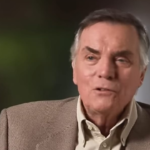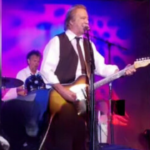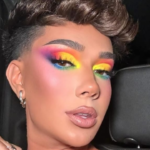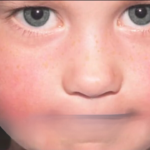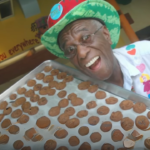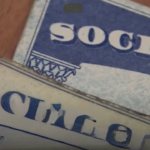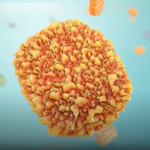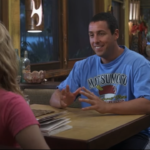Venezuela: Nicolás Maduro’s biggest challenge in the upcoming 2024 elections
On Sunday, Venezuela will confront the largest election challenge in the previous 25 years. After 11 years in office, President Nicolás Maduro is running for a third term against former diplomat Edmundo González.
His primary opponent shows up backed by a sizable portion of the opposition that put aside their disagreements to back the candidate.
The self-proclaimed socialist regimes that were started 25 years ago by the late leader Hugo Chávez, who was effective in promoting social programs in his early years, are being tested by these presidential elections. Authorities have been charged with corruption and poor management over the years, which is said to have caused the nation’s economic catastrophe and prompted millions of people to flee.
Polling places close at six o’clock, but it’s not clear when the preliminary results will be made public.

Although it’s unknown when election officials will make the announcement of the results, polling places will start to close at 6 p.m. They have stated that they will only reveal the information when the trend is irreversible and that they typically do not give partial reports.
Exit polls cannot be distributed prior to the first official bulletin in Venezuela.
Although the polls didn’t open until six in the morning, many voters were in line much earlier—some even several hours beforehand.
Nothing is immune to the uncertainty that permeates everyday life in crisis-ridden Venezuela and has driven millions of people to flee, not even love.
People are continuously speculating about whether they will have to immigrate ahead of the presidential elections, and young people are discussing if it is better to start dating again or break up with their current partner.
Some people ponder whether it’s OK to inquire about a vital matter: Will you be departing the nation?
In a presidential election on Sunday, Venezuelans will choose whether to back opposition candidate and former diplomat Edmundo Gonzalez or to continue President Nicolas Maduro in office.
The most recent details about Venezuela’s election contest are provided below.
9:00 a.m.
The timing of Sunday’s presidential election in Venezuela was done to give the ruling socialist party a final-ditch attempt to win the fierce contest by coinciding with former President Hugo Chavez’s 70th birthday.
Nicolás Maduro became the previous president’s political heir after he passed away in 2013 due to cancer.
His followers celebrated Chávez’s birthday by sharing a cake in the 23 de Enero area, home to a tomb containing his bones.
——-
8.37 in the morning
95 percent of the voting places spread out around the nation are open, according to a statement made by Elvis Amoroso, president of the National Electoral Council (CNE).
30,026 voting places were set up by the CNE for the presidential contest.
Amoroso stated that all operational technical staff members had been in the polling places since 6 a.m., when the polls opened.
——-
8.02 a.m.
“Leave, leave, leave! As presidential contender Daniel Ceballos arrived to cast his ballot at a high school in central Caracas, a throng of opposition supporters yelled, “Traitor!”
Less than a year after the president’s election, Ceballos led anti-Maduro demonstrations in 2014 and demanded his resignation. He was imprisoned due to his firm position.
Years after his release from prison, he lost some of his wits and, more recently, shocked both allies and adversaries by declaring his intention to challenge Maduro using language critical of the major opposition alliance.
——-
7.55 a.m.
Voters in Petare, an east side Caracas working-class area, waited hours in line to cast their ballots.
“All will be well, in the name of God. Everyone will have their position, and well, it’s time for Venezuela to change “52-year-old domestic worker Judith Cantilla stated as much.
He said, “We’re exhausted.” “For me, a change in Venezuela (is) that there is employment, that there is security, that there are medicines in hospitals; a good payment for teachers, for doctors.”
to least 150 people were in line when Liana Ibarra, a manicurist from the Caracas metropolitan area, arrived to the polls around three in the morning.
Ibarra, 35, said, “My aunt wrote to me from the United States to ask if I was already in line, at two in the morning.” Ibarra had a backpack with snacks, coffee, and water.
Eleven of his mother’s siblings have left the country. She claimed that because her 5-year-old kid had special needs, she hasn’t followed them. Gonzalez, however, intends to petition his relatives to support his and his son’s application for lawful immigration to the US if they are unsuccessful.
Sociologist Clarisa Machado, 74, who supported Maduro in Petare, for her part, claimed that “people are more awake, more aware” and expressed confidence that the experience gained from years of severe crisis will enable the government to get through challenging circumstances and raise the standard of living for Venezuelans.
——-
7.15 a.m.
At least eight party representatives who have been granted permission by the National Electoral Council to supervise voting are being prevented by police from entering Venezuela’s largest polling location in Caracas more than an hour after polls were scheduled to begin.
The delegates presented their printed access certificate to the officers, who encircled the entrance with their arms.
The primary spokesperson for the Unitary Platform party, Marisol Contreras, 58, claimed that when she came at 4 a.m., she was informed that she was not allowed to enroll in elementary school.
At the door stood government representatives informing them that all the staff needed was inside already.
